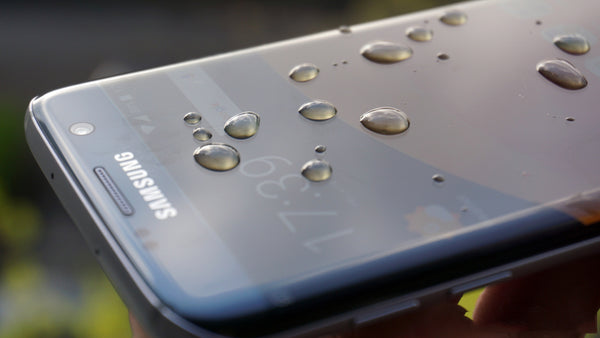When scouting for a new phone, the ubiquitous presence of an official IP68 ratings for dust and water resistance among flagship models likely caught your eye.
Amidst the yearly advancements in performance, camera capabilities, and battery life, why does the IP rating seem to remain steadfastly at IP68? What exactly does this rating signify, and is it the pinnacle of smartphone water resistance? Let’s unravel the intricacies.
Understanding IP68: The Shield Against Dust and Water
The enigmatic IP68 rating unveils a device’s resilience to dust and water. In the realm of Ingress Protection (IP) ratings, the first digit conveys defense against solids, while the second denotes water protection.
Contrary to the common assumption, not all flagship phones boast an IP68 rating. Take Samsung’s foldable marvels, the Galaxy Z Flip 4 and Fold 4, which flaunt an IPX8 rating. The elusive “X” signifies an absence of official testing for solids protection, yet it doesn’t negate their potential resistance to dust.
In simpler terms, an IP68 rating assures that your phone adheres to specified standards for water and solids resistance, offering warranty coverage for water damage. Absence of an IP rating implies uncertain survival in similar conditions, with no warranty claims for water-induced issues.
The Quirk of Unofficially Tested Devices:
Brands occasionally sidestep official testing, even when their devices harbor dust and water-resistant features. The OnePlus 8, renowned for OnePlus’s IP rating aversion until then, demonstrated commendable water resistance despite lacking an official rating. OnePlus justified this approach by claiming cost savings, resulting in more budget-friendly phones.
The Summit of Ingress Protection:
IP69k Contrary to popular belief, IP68 isn’t the zenith of Ingress Protection; that honor belongs to IP69k. While we’ve delved into the intricacies of IP code measurement previously, a device earns an IP68 rating if it remains dust-tight and withstands immersion in water over one meter deep for at least 30 minutes.
However, devices with IP68 ratings aren’t uniformly tested. Consider the Galaxy S22 Ultra and iPhone 14 Pro Max, both with IP68 ratings but varying depth tolerances—1.5 meters for the former and six meters for the latter.
In stark contrast, the IP69k rating signifies full dust-tightness and resilience to high-pressure, high-temperature water jets. This extreme level of protection surpasses the needs of regular smartphone users, explaining its absence in mainstream smartphones.
IP Rating: A Guide, Not a Strength Indicator:
While an IP rating serves as a valuable guide to your phone’s resistance against dust and water, it doesn’t equate to durability against physical impacts. The essence of an IP68 rating lies in instilling confidence. Don’t let a slightly lower IP score dissuade your purchase; budget-friendly phones might skip IP tests to cut costs. Remember, even with an IP68 rating, self-testing your phone’s limits in extreme conditions isn’t recommended.



















